|
Grief has been a major part of my life since that day and I have spent the past 14 months navigating this journey, realizing how lonely and isolated I have felt in my grief. Missing Zalayah Immediately after leaving the hospital without my baby, I felt lonely in the sense that I missed my daughter. I carried her for 9 months and knew that she was with me no matter what I did and where I went. It brought me comfort knowing that I wasn’t alone. Early in my pregnancy, I had extreme nausea and felt like she was reminding me that she was there, and she was okay. Once the nausea had ended, before I could feel her movements, my baby bump started to grow and the cravings for certain foods had increased. I wondered if the foods I craved would be her favourite when she started eating solids. My body was changing every day and it was growing with my baby. I imagined how my future would be with her. I played music for her, sang to her, and spoke to her every day and then just like that, she was gone.
Friends, Family and Grief During my pregnancy, I felt like everyone wanted to be around me. Friends, family, and colleagues would want to touch my growing belly. They would ask me how I was doing on a regular basis, wondering when my next ultrasound was, what her nursery would look like, what I needed for her and if they could help in any way. Those who were already parents were giving us advice, telling us what we needed and did not need, what to expect during labour and delivery and how life would change when we brought her home. We were all oblivious to the fact that she may not come home.
Even though her life was very short, I still wanted to talk about Zalayah and my experience giving birth to her, holding her, taking pictures of her, and saying goodbye to her; yet it felt like those around me just wanted to move forward and did not know how to bring me along with them, so they left me behind in the past. Losing a baby is such a sensitive subject in society that many people did not know what to say to us. I know if it happened to someone I love; I probably would not know what to say either. As her mother, I want to ensure her memory is kept alive by talking about her whenever I can and sharing her photos. At the same time, I do not want to negatively impact others by bringing up such a difficult topic and discussing how sad, hurt, and traumatized I feel every time they reach out to me. I have also hesitated to share her photos out of fear I will offend someone. I admit, I never really reached out to people at first to tell them what I needed but it was too difficult to put it into words, so I remained silent.
Medical Professionals and Grief As someone who has experienced depression, I knew the isolation would only make things worse for me, so I sought out help from professionals. Although the sessions were limited to an hour, I looked at it as an opportunity for me to talk freely and openly about Zalayah without judgment. While most of them were extremely helpful, a few seemed to dismiss the fact that I had lost a baby. One psychologist expected me to be in a “better place” than I was 3 weeks after Zalayah was born. The lack of understanding and compassion from this healthcare professional pushed me further into the depths of loneliness. I felt like I could no longer be honest about how terrible I was feeling at the time. I also felt like my feelings were not valid and I should have gotten over the loss by then. The next session, I lied about being in a better place to match her expectations and I was discharged.
Gender Differences and Grief My husband and I became stronger immediately after the loss of our first born, Zalayah. I was an emotional wreck and he was my support system. He was the only other person in my life who truly knew how I was feeling. He understood when I started crying out of nowhere, he listened in agreement when I rambled on about how unfair life is and when I questioned why us. He reassured me and stopped me from blaming myself for her death. Looking back, I realize, he put aside his own emotions to make sure I was okay. Over time I started to realize I was always talking about our daughter. I felt like I was the only one who was always crying, always trying to find an answer as to why it happened. He attended the first few counseling sessions but after a while, I was attending them on my own. I started to resent him and then started to feel guilty for how I felt. I did not want to bring him down by telling him how hard my day was or how much I had cried because I felt like he was in a better place than I was. Again, I started to feel very isolated in my own grief. I would only cry in the bathroom or into my pillow, I stopped expressing how I felt and once again turned to the internet for validation. I learned that there are known/studied differences in how men and women grieve. Everything I read was very accurate for us and I began to realize that even though my husband was not expressing his grief in the same way that I was, he was still grieving. Little did I know, he was also crying in the bathroom or into his pillow and would get upset when he saw parents pushing a stroller on our walks or a car seat in a client’s car at work. Knowing that we were having similar experiences helped me to feel less lonely, but I still did not talk about her as much as I wanted to because I did not want to upset him, especially when I thought he was in a good place that day. Pregnancy After Loss Nick and I decided to try for another baby as soon as we could. The desire to bring a baby home was stronger than ever. Although I knew my life would never be the same and she could never be replaced, I thought that having another baby would be healing. We decided early on that we would only tell our parents and immediate family (siblings only) about the pregnancy and would announce it to everyone else once the baby was born. We did not want people to assume we were okay and had gotten over Zalayah’s death because we were having another baby. I also did not want people to view this baby as a replacement and I did not want to hear any hurtful comments (Example: Nick could not come to the ultrasounds during the pandemic, so we paid to have a gender reveal at a private clinic. Most ultrasound technicians would ask if this was my first baby and I would always respond “no, my first was stillborn, this is my second.” Stating my first was stillborn up front alleviated follow up questions like “how old is your first”, “boy or girl” etc. When this ultrasound technician asked, she immediately responded “well no, then this is your first” completely dismissing my daughter, that was the type of hurtful comment I was afraid of and why I wanted to keep the pregnancy a secret). I got pregnant in March 2020 but had a miscarriage within a few days of finding out. I then found out I was pregnant again on Mother’s Day in 2020. It was a great gift, and I was so relieved, but that was short lived. Fear and anxiety immediately set in and became my primary emotions until I gave birth to Ezrah on Christmas Eve. The article 15 Things Babyloss Parents Do When They Get Pregnant Again describes everything I did when I found out I was pregnant and the reasons why very accurately. The following quote from the site sums up the experience nicely “The journey of pregnancy after loss can feel like a long and lonely one, fraught with worry and tension.” I did not realize how hard pregnancy would be while grieving the loss of my daughter. I cried, prayed, worried, counted the days, grieved, and cried some more. Because we decided not to tell many people, I hardly talked about my pregnancy with anyone other than my counselor. I did not download the apps this time, no social media announcement, no baby shower, no online birth clubs, no maternity shoot. I did not celebrate milestones, instead looked at every day as the day I could lose this baby too. I felt ashamed for how I felt. It was difficult for me to connect with my son as I always feared I would not bring him home.
How To Not Feel So Alone
Being isolated in grief makes the journey even harder. COVID did not help in a lot of ways but it did help us to hide the pregnancy. Despite the isolation, I have grown over the months. I had to be the strongest person I have ever been to be able to get through each day and not allow it to completely cripple me. Finding a community of parents who had similar experiences is what helped me the most. I connected with other parents by participating in the 2020 Butterfly Run and the Loss Parents Greeting Card Exchange, and by attending the perinatal loss and the pregnancy after loss groups at Roger Neilson House (RNH). The run gave us a reason to talk about Zalayah with our friends and family while supporting RNH. Many people supported us and told us they often think of us and Zalayah but never knew what to say which is why they did not reach out. This was comforting for Nick and me. I reached out to mothers on loss forums and remained in contact with a mother whose daughter was born still exactly two months after Zalayah. Our rainbows were born within 7 weeks of each other. We were able to support each other throughout which was great. Having this community of parents who are also on this difficult journey validated how I was feeling as many parents felt the same way. I also sought out a counselor who was compassionate, who could help me start the process of healing from the loss of Zalayah while pregnant. I looked forward to the nights that I could talk to my counselor about Zalayah and Ezrah with no filter. I taught my friends and family how I wanted to be treated. I told them I wanted to be considered a mom, I wanted to hear Zalayah’s name, I wanted to be acknowledged on her birthday and Mother's Day, I wanted her name on family holiday cards that were sent to us and I wanted to talk about her. I also shared the links below to let them know how they can approach me. Nick and I agreed to communicate more often, and I made the effort to share how I was feeling by using an analogy we learned from another couple in the perinatal loss group (We would ask each other how big the “grief ball” was that day. The larger it was, the more time we set aside to talk about it). 30 women share the one thing that helped them most after a miscarriage (todaysparent.com) 18 Supportive Things to Say to Someone Who Lost a Baby or Miscarried | Cake Blog (joincake.com) Unfortunately, grief and loneliness go hand and hand; however, connecting with a community of parents who have had similar experience and sharing your story can help alleviate that feeling of loneliness.
0 Comments
Your comment will be posted after it is approved.
Leave a Reply. |
Archives
April 2023
Categories
All
|
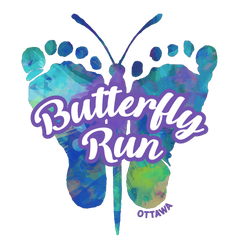
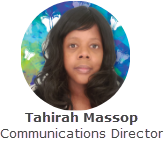
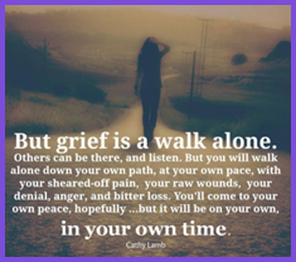
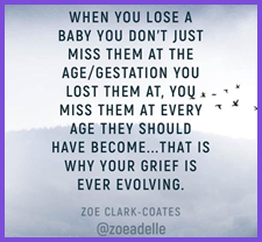
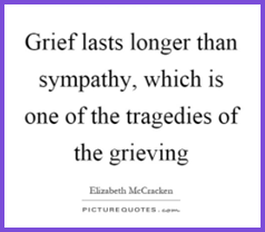
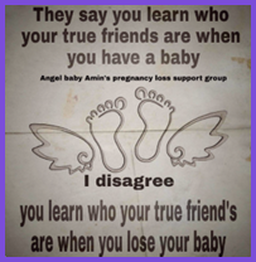
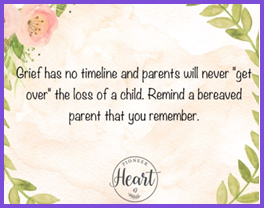
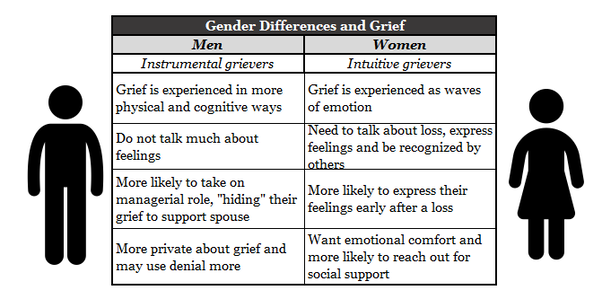
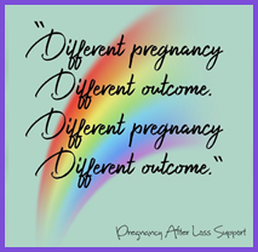
 RSS Feed
RSS Feed